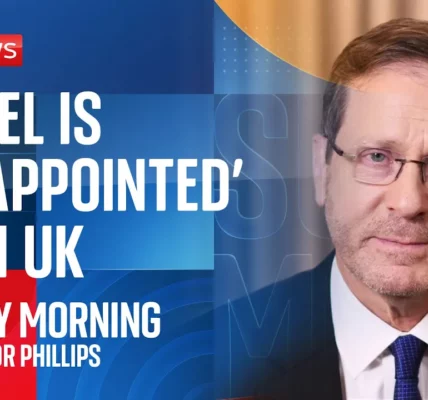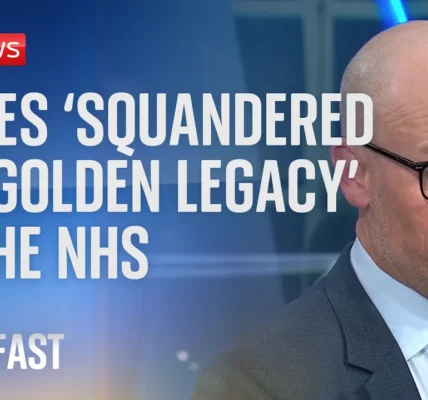Protests and Political Tensions as Netanyahu Addresses Congress

On a day marked by high drama in the U.S. capital, Israeli Prime Minister Benjamin Netanyahu addressed Congress amidst widespread protests and significant political controversy. This article delves into the events surrounding Netanyahu’s speech, the protests, and the implications for U.S.-Israel relations and the ongoing conflict in Gaza.
Introduction
Today, the U.S. capital witnessed significant protests coinciding with Israeli Prime Minister Benjamin Netanyahu’s address to Congress. Amid raucous applause from supporters, many lawmakers opted to boycott the event, highlighting the deep divisions within U.S. politics regarding the ongoing conflict in Gaza. Netanyahu’s speech focused on his government’s resolve against Hamas and the need for continued U.S. support, while outside, demonstrators voiced their opposition to his policies and actions, reflecting a growing discontent with the Israeli government’s approach to the conflict.
Netanyahu’s Address to Congress
Netanyahu’s address lasted approximately one hour, during which he passionately outlined Israel’s stance against Hamas and emphasized the importance of the U.S.-Israel alliance. His remarks included:
- A vow to fight Hamas until all hostages are released.
- Accusations against protesters, labeling them as “Iran’s useful idiots.”
- Criticism of the International Criminal Court (ICC) and its war crimes allegations against Israel.
Key Messages
Netanyahu’s speech was characterized by several key themes:
- Defiance Against Hamas: Netanyahu stressed Israel’s commitment to defeating Hamas, stating, “I will not rest until all their loved ones are home.”
- Alliances and Support: He reiterated the need for U.S. support in Israel’s fight, portraying it as vital not only for Israel but for American interests in the region.
- Condemnation of Protesters: Netanyahu directed strong criticism at the demonstrators outside, linking them to Iranian support and calling their actions shameful.
Protests Outside Congress
As Netanyahu spoke, protests erupted outside Congress, with demonstrators expressing outrage over his presence and actions in Gaza. Key points from the protests included:
- Demonstrators chanted “Free, free Palestine,” and held placards accusing Netanyahu of war crimes.
- Police responded with pepper spray and arrests as tensions escalated.
- The protests highlighted the division among lawmakers, with significant absences from prominent Democrats including Vice President Kamala Harris.
Public Sentiment
The protests were indicative of a larger discontent among various segments of the American population regarding U.S. foreign policy in the Middle East. Many Americans are increasingly vocal about their opposition to military support for Israel amidst reports of civilian casualties in Gaza.
Political Implications
The events surrounding Netanyahu’s speech and the protests hold significant implications for U.S. politics and foreign policy:
- Division within the Democratic Party: The absence of key Democratic figures during Netanyahu’s address underscores the internal conflicts regarding U.S. support for Israel.
- Biden’s Challenges: President Biden faces mounting pressure to navigate the complex landscape of U.S.-Israel relations while addressing the concerns of his party’s progressive wing.
- Future of U.S.-Israel Relations: Netanyahu’s defiant stance may complicate efforts to establish a ceasefire or peace agreement in the region, which is increasingly seen as essential for long-term stability.
Conclusion
The day’s events have highlighted the ongoing tensions surrounding U.S. foreign policy and the Israeli-Palestinian conflict. As Netanyahu continues to assert Israel’s position against Hamas, the protests signify a growing demand for accountability and a reevaluation of U.S. support for Israel. The political ramifications are yet to be fully realized, but they will undoubtedly shape the discourse leading up to the next presidential election. For those wishing to stay informed on this evolving situation, further coverage and analysis will be provided as events unfold.
Call to Action: Stay tuned for more updates on this story and others affecting U.S. foreign policy. Subscribe to our newsletter for the latest news and insights.
“`




